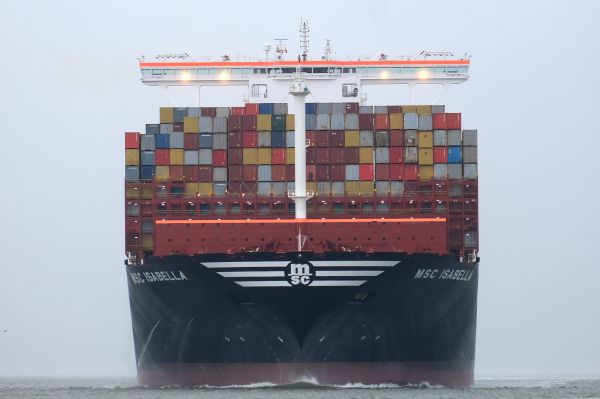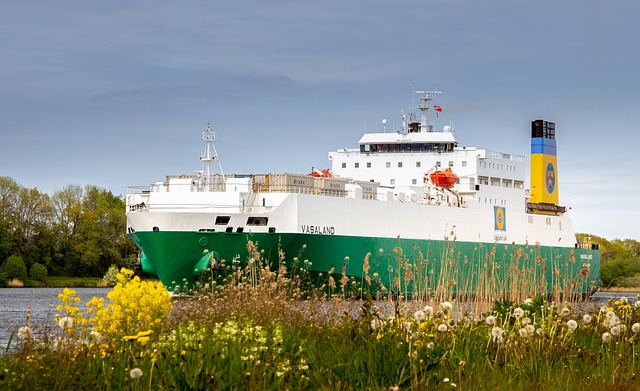Shipping BBQ Grills from Guangzhou/Shenzhen to Mexico City Port (CIF) – 20FT/40FT FCL and LCL Shipping
Shipping Options: FCL and LCL
Full Container Load (FCL) Shipping
For larger shipments, Full Container Load (FCL) is the preferred option. BBQ grills are bulky items, and FCL shipping ensures that your goods are transported securely in a 20FT or 40FT container, depending on the volume of your order. Using FCL shipping minimizes the risk of damage since your cargo will be in a dedicated container with no other goods competing for space. FCL also offers the advantage of faster transit time compared to LCL because your cargo doesn’t need to be consolidated or deconsolidated at the ports.- 20FT FCL: Suitable for smaller shipments, typically around 10 to 12 tons or 28-30 cubic meters.
- 40FT FCL: Suitable for larger orders, with a capacity of up to 25 tons or around 60 cubic meters.
Less than Container Load (LCL) Shipping
If you do not have enough products to fill an entire container, you can choose LCL shipping. This means your BBQ grills will share container space with goods from other exporters. The main downside of LCL is the longer transit time since your cargo will need to be consolidated at the port in China and deconsolidated upon arrival in Mexico City.- LCL Shipping: Ideal for shipments of less than 10 cubic meters or smaller quantities of BBQ grills.

Transit Time and Route
The sea freight journey from Guangzhou/Shenzhen to Mexico City typically takes around 26 days, depending on the route and specific shipping line used. The route generally follows the path across the Pacific Ocean, stopping at major transshipment ports such as Los Angeles or Manzanillo before reaching the port of entry in Mexico City. From the port, goods are cleared through customs and can be transported inland to their final destination.
- Sea Freight Duration: Approximately 26 days from port to port.
- Port of Origin: Guangzhou or Shenzhen
- Port of Destination: Mexico City Port (Manzanillo or Veracruz)

Packaging BBQ Grills for Sea Freight
Proper packaging of BBQ grills is crucial to ensure that the products arrive in perfect condition. Due to the nature of the goods (usually made of metal, porcelain, or steel), they need to be packaged securely to avoid scratches, dents, and other damages during transit. Here’s a detailed guide on how BBQ grills should be packaged:
Individual Packaging
Each BBQ grill should be individually wrapped in bubble wrap or foam padding to prevent scratches or damage to its surface. The protective layer should cover all vulnerable areas such as the grill body, handle, and legs.Cardboard Boxes or Wooden Crates
For added protection, BBQ grills should be placed in double-walled cardboard boxes or even wooden crates. The box should be strong enough to bear the weight of the product, especially if you are shipping multiple items together. Wooden crates are often preferred for more fragile or high-value BBQ grills as they offer more durability.Padding and Cushioning
In the case of using cardboard boxes, the box should be filled with appropriate cushioning material like packing peanuts or foam to fill any empty spaces. This will prevent the grills from moving around inside the box during transport.Sealing and Labeling
Ensure that the boxes or crates are sealed securely using strong packing tape to prevent them from opening during transit. Also, label each package with clear shipping details, including the recipient’s address, contact number, and any relevant customs information for easy identification.Palletizing
When shipping BBQ grills in large quantities, it’s common to palletize the goods. This involves stacking the boxes or crates on a wooden pallet and wrapping them with shrink wrap. Palletizing makes the cargo easier to handle during loading and unloading and reduces the risk of damage.
Customs Clearance and Insurance
As part of the CIF (Cost, Insurance, and Freight) arrangement, the seller is responsible for paying the cost of shipping, insurance, and freight to the Mexican port. This ensures that the goods are covered in case of loss or damage during transit. Once the BBQ grills arrive at the port in Mexico City, they will go through customs clearance. It’s important to provide all necessary documentation, such as:
- Commercial Invoice
- Packing List
- Bill of Lading
- Import Declaration
Having a professional customs broker or logistics provider handle the customs procedures can expedite the clearance process and avoid unnecessary delays.



